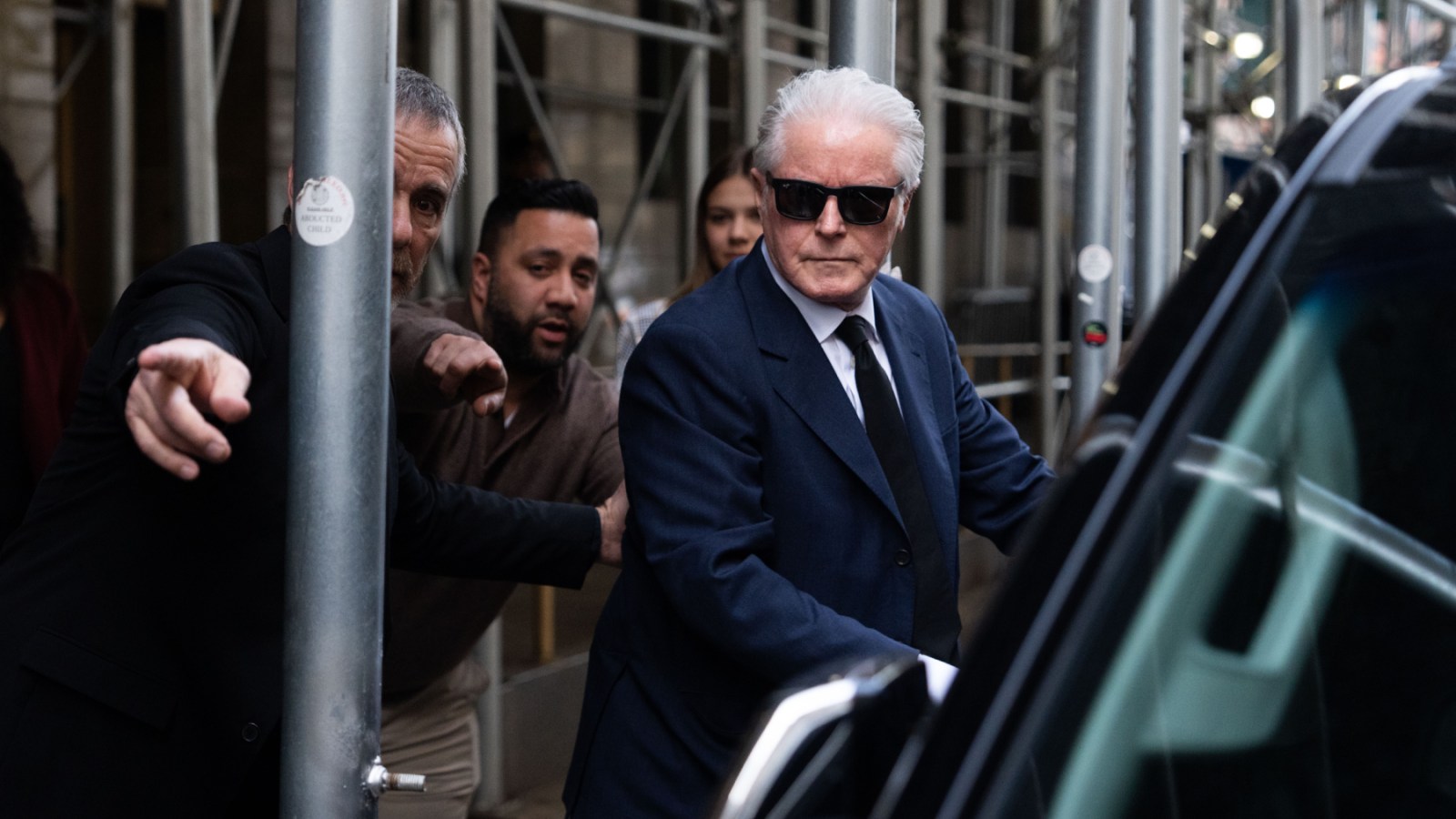A judge has dismissed a wrongful prosecution lawsuit brought by a rare books dealer, who was previously accused of trying to sell stolen copies of handwritten Eagles lyrics.
Glenn Horowitz was one of three defendants in the criminal case last year, which prosecutors ultimately abandoned mid-trial after admitting new information had come to light and that their “confidence in the merits of this case” had faltered. Earlier this year, Horowitz filed a civil suit against the Eagles’ Don Henley and the band’s longtime manager, Irving Azoff, accusing them of malicious prosecution, intentional infliction of emotional distress, and more.
But earlier this month, a New York State Supreme Court judge granted Henley and Azoff’s motion to dismiss the suit. Kathleen Waterman-Marshall said the Manhattan District Attorney’s Office had “ample probable cause” to pursue a criminal case against Horowitz, noting that a grand jury had indicted him “based upon the DA’s independent and years-long investigation.”
Waterman-Marshall also referenced the document dump that led to the abandonment of the criminal trial. She noted that none of the documents “were found to exculpate” Horowitz, nor did their release “result from any bad faith conduct on the part of the defendants.”
Rather, as she stated in court proceedings, the prosecution’s dismissal of the case was “based upon the inability of Mr. Horowitz’s defense to be presented with certain information.” She added that “there’s no finding that that information was withheld by Mr. Henly or any of the Defendants for an improper purpose.”
Dan Petrocelli, a lawyer for Henley and Azoff, celebrated the decision, telling Rolling Stone in a statement, “The only malicious prosecution was Horowitz’s own lawsuit, which the Court promptly and rightly dismissed.”
Horowitz’s lawyer, Caitlin Robin, said, “We are appealing and moving to renew and reargue the judge’s dismissal against Don Henley and Irving Azoff.” She also noted that Horowitz is still pursuing a malicious prosecution suit against the city of New York.
Horowitz was one of three defendants charged in the criminal case, which involved over 100 pages of allegedly stolen drafts of songs from the Eagles’ Hotel California, written by Henley and Glenn Frey. When some of those pages were considered for auction in the 2010s, Henley claimed they were stolen, taking the case to the Manhattan DA’s office, which indicted Horowitz and the two others in summer 2022.
In his civil suit, Horowitz said he and a business partner, John McWhinnie, purchased the lyrics from writer Ed Sanders, who’d obtained them in the late Seventies, when he was contracted to write a biography about the Eagles. (The book was scrapped, but Sanders held onto the material.) Horowitz said he and McWhinnie eventually sold the lyrics to Rock & Roll Hall of Fame curator Craig Inciardi and rock memorabilia dealer Edward Kosinski in 2012. Henley got involved when those two tried to put some lyrics up for auction; by then, Horowitz insisted, his affiliation with the lyrics was “terminated” and “never to be reassumed.”
Over the next few years, Kosinski and Inciardi tried to sell excerpts from the lyrics on several occasions, and Henley kept trying to stop them. At one point, Horowitz claimed Henley filed a report with the Los Angeles Sheriff’s Department “in which he falsely alleged” that the papers “consisted stolen property.” And in 2016, the Manhattan DA’s office got involved.
Horowitz claimed that Henley “knew or should have known” that Horowitz’s previous possession and sale of the lyrics was “lawful.” Nevertheless, the rocker “pursued and materially assisted in the commencement and continuation of criminal proceedings against [Horowitz] by making false statements to law authorities.”
But in dismissing his suit, Waterman-Marshall said that Henley’s “report to law enforcement that his property had been stolen does not constitute the type of outrageous conduct” that would legally be considered intentional infliction of emotional distress.
Henley, for his part, has maintained that the notepads were his property. He claimed that the contract Sanders signed to write the book stipulated that all “materials” given to him for his research remained the property of the Eagles, meaning he had no right to sell them.
Along with Horowitz’s separate case against the city of New York, Henley has a pending lawsuit of his own in New York as he seeks to reclaim the lyrics sheets. The handwritten notes have remained in the custody of the Manhattan DA’s office since the conclusion of the criminal trial, pending a decision over their rightful owner.



